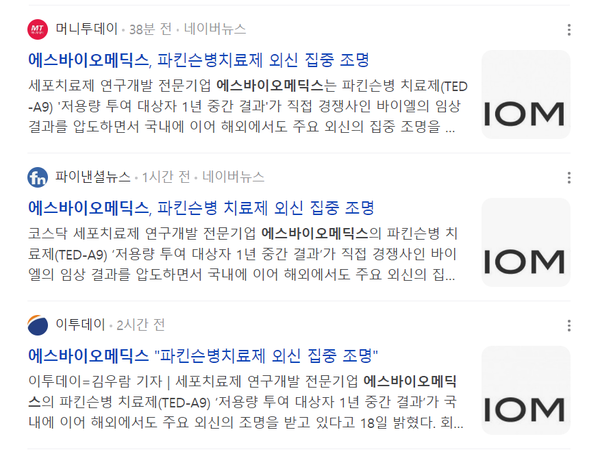Over the past two days, two Korean healthcare companies -- JLK and S.Biomedics -- released press releases based on false information, claiming “foreign media drew special attention” to their products, seemingly to inflate their stock prices.

On Wednesday, JLK released a Korean press statement claiming that the Associated Press (AP) had introduced their solution.
However, that was simply untrue. The AP merely released the press release, clearly labeled as "Paid Content from Globe Newswire," and explicitly noted that its news staff had no role in its creation.
However, several Korean media outlets “copied and pasted” the press release into their articles and published them, even on the nation’s largest internet portal Naver.
The financial impact of this misleading practice was significant.
Following the release, JLK's stock soared to its daily upper limit on Wednesday, closing at 14,690 won ($10.64), a sharp increase from the previous day's closing price of 11,300 won and a market capitalization increase of approximately 55 billion won.
Such a dramatic rise was particularly striking given that JLK's shares plummeted more than 20 percent after it announced a 48 billion won capital increase on Monday.
While the stock gain was short-lived, as JLK's shares plummeted again to 13,630 won, down 7.22 percent, as of market close Thursday. Shareholders voiced their frustration, accusing the company of clear deception.
"This practice is nothing short of a betrayal to its shareholders," one investor remarked on the company's stock discussion page.
Industry insiders also reacted negatively toward the news.
"Why are we the ones left embarrassed? AP clearly mentioned that it wasn't written by their reporters, and it is incomprehensible why they distributed such a press release," one industry official told Korea Biomedical Review, asking to remain anonymous. "Ultimately, isn't it all for the stock price?"
Another insider echoed this sentiment, describing the practice as "practically market manipulation," lamenting that such actions primarily harm small investors.
A correspondent for a U.S. news outlet based in Korea expressed disbelief, stating, "Foreign media would never publish such articles in that manner."
Even if they did, it wouldn't be presented like this, the reporter wrote on his social media page.
"I hope the recent case has nothing to do with raising stock prices," he wrote. "The real issue lies with the Korean media outlets that blindly copy and publish this content online."
Then, on Thursday, S.Biomedics also tried to promote the company's drug candidate using similar methods.
The company issued a press release claiming that "foreign news outlets spotlighted its clinical trial for TED-A9, a Parkinson's disease treatment candidate."
The release stated that "multiple" foreign news reports highlighted the success of their low-dose clinical trial results, emphasizing the potential of TED-A9 to become a fundamental treatment for Parkinson's disease.
S. Biomedics did not name any specific foreign media and misled the public into believing these were independent reports.
When asked about which foreign media reported it, a company official listed outlets such as Parkinson's News Today, Morningstar, CGT Live, and Healio.
However, the truth was that these outlets merely republished press releases distributed by S.Biomedics through business newswire services.
When confronted, S.Biomedics attempted to justify its actions by suggesting that the distribution via Business Newswire prompted follow-up coverage by "other outlets."
However, some outlets published the same article released by Business Newswire and even addressed the distribution network as the author.

Still, S.Biomedics' press release was uploaded exactly the same way as the original in various Korean outlets.
Despite these false claims, S.Biomedics' stock saw a modest 2.5 percent increase, demonstrating the potent effect of perceived foreign validation on investor confidence.
Both news -- from JLK and S.Biomedics -- received many online coverages from well-known Korean media outlets.
The ethics of these practices are dubious at best. By presenting paid content as legitimate news, these two companies deceived investors and tarnished the reputation of the Korean healthcare industry.
The resulting artificial stock price inflation benefits the companies at the expense of honest investors.
This manipulation highlights the urgent need for stricter regulations and greater transparency to ensure accurate and ethical information is presented to the public and investors.

